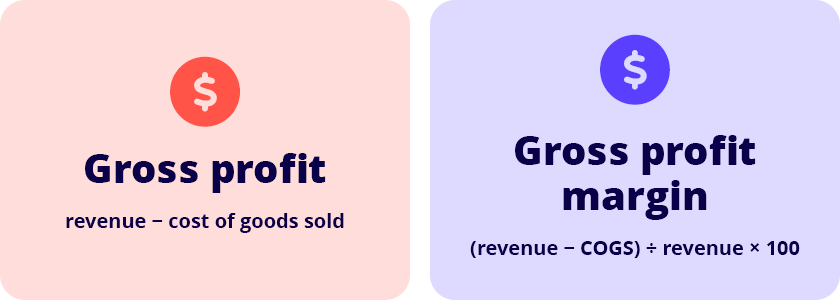The basic formula for calculating your gross profit is:
Gross Profit = Revenue – Cost of Goods Sold.
To turn this into a percentage (or gross margin), the gross profit margin formula is:
Gross profit margin = (Revenue – COGS) / Revenue x 100

What is the cost of goods sold?
As you can see, to calculate your gross profit you first need to understand your cost of goods sold or COGS.
COGS are the inputs and expenses which are directly incurred in the production of goods or delivery of services. These can include wages, raw materials, supplies, delivery, packaging et cetera.
What is revenue?
In business ownership, your revenue is the total income created by the sale of your goods or services.
Why calculate your gross profit margin?
Gross profit margins are a useful metric to discover whether your offerings have the potential to generate sufficient revenue, considering production or service delivery costs. Essentially, your gross profit margin calculation tells you what kind of profit you’re making on each sale.
However, the downside is that there are more business expenses (other than COGS) to be considered in understanding your total profit margin or net profit margin. Your net profit will go further to include every single expense your business incurs in its entirety.
See related terms
What is gross profit?
Gross profit vs net profit
What is a balance sheet?






























